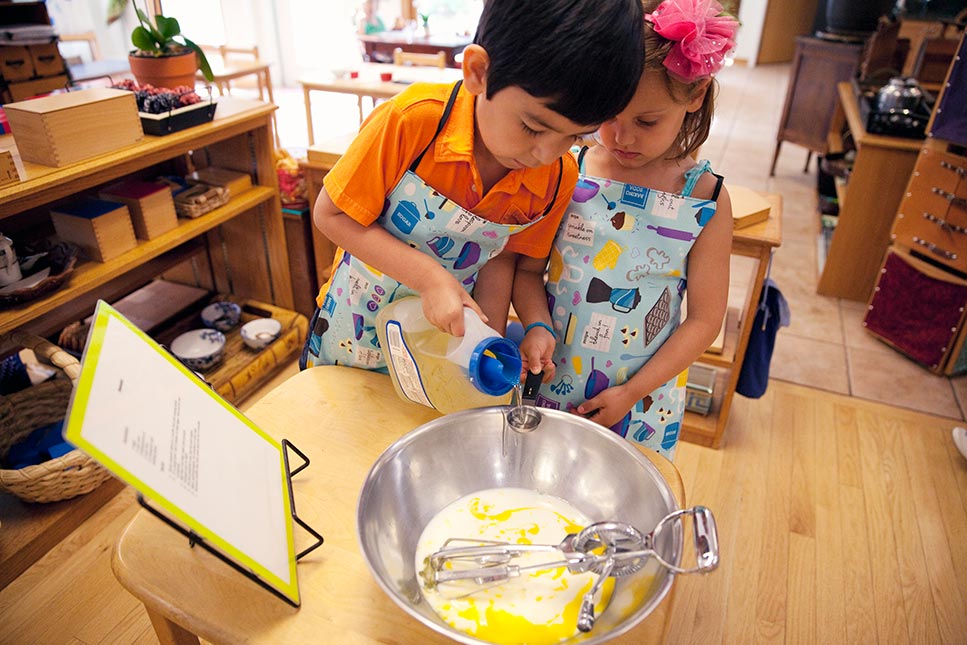Being very rich so far as I am concerned is having a margin. The margin is being able to give.
– May Sarton, Journal of a Solitude
Raising children who conduct their lives according to a moral or ethical standard has never been easy. Yet today’s parents and teachers – even those of us who continue to delight in our work with children – wonder if something significant about childhood is missing. We suspect our daily labors are more strenuous and disorienting than they were for our grandparents.
Most children still enter their first classroom interested and curious. Children’s great intelligence, the strength of their minds, has certainly not declined. They still adapt to the environment that surrounds them. We still notice that children pass through relatively predictable, consistent phases in their development.
Traits such as empathy and generosity are, however, increasingly rare. In our culture, with its emphasis on independence, achievement and competition (winning), we wonder if these once honorable characteristics have become archaic or, even worse, harmful. How can a child who must eventually compete with her peers also act with compassion?
[pullquote]When children act empathetically, they are thinking neither of themselves nor of their companions, but of the primary importance of friendship[/pullquote]
Ours is a poverty of affluence. Many children today enjoy the privileges of modern health care and adequate housing. Their minds are, however, severely compromised by the virtual environments offered by contemporary media sources. Though the buildings children inhabit are now generally clean and safe, the child’s spiritual, physiological and intellectual life is endangered.
Many modern children enter their first classroom physically weak , emotionally immature and spiritually deprived. A child who has never held anything heavier than a remote control cannot control a pencil. Children whose primary relationship is with a television have never experienced empathy. Children surrounded by electronic entertainment may never witness charity. Neither physical nor spiritual growth can be vicarious experiences.
Community and Generosity
In intelligently structured, well-administered schools, the children work together to maintain orderly classroom communities. They learn through experience to consider the limitations and feelings of others. They begin to understand that they are important and that every person’s contributions are valuable. Through their disagreements and frustrations, children learn in school to think empathetically and to understand that their relationships with their teachers and with their peers are reciprocal.
Generosity is, finally, an outgrowth of the thoughtful people children become. In the best circumstances, where a child’s home and school community work in close partnership, generosity becomes an unconscious ethical perspective. It is not a set of principles or dictates, but a product of a child’s life as she experiences it, an attitude she absorbs working in a community of loved family and friends.
One morning this spring I observed a community of children gather to go outdoors and enjoy a glorious day. One of the children lagged behind at his table, discouragement obvious in his hesitation. Noticing his friend’s frustration, a child stepped away from the group and offered to help. I watched as these two young children sat hunkered together at a table, talking earnestly. Together they worked to finish reading the words that had become a stumbling block, so engrossed in their efforts they did not notice as their peers proceeded outdoors.
Generosity in a strong classroom community is not usually an attribute of one child or another, but rather the connection that exists between children. They experience it as the joy of friendship and the beauty of community. When children act empathetically, they are thinking neither of themselves nor of their companions, but of the primary importance of friendship. They act with generosity because they delight in the opportunity to give something of themselves to the community that continues to inspire.



Leave a Comment